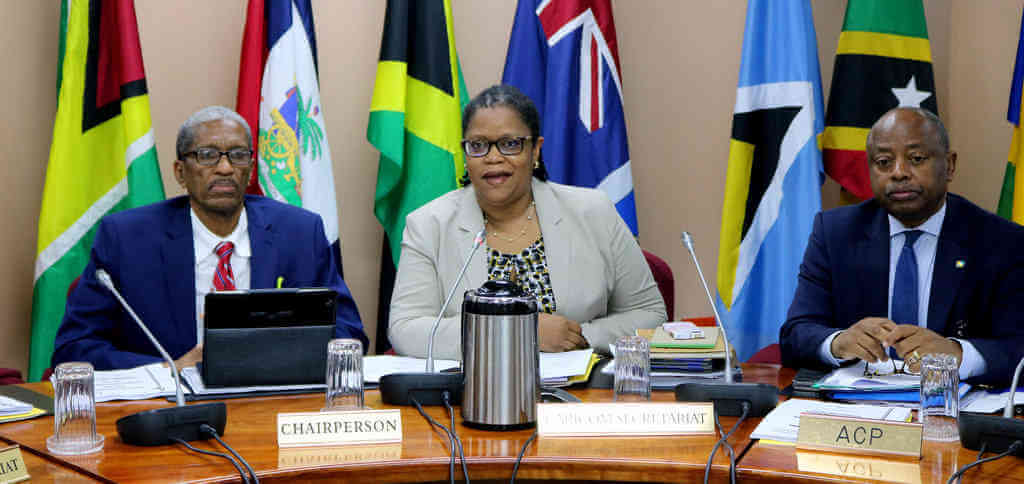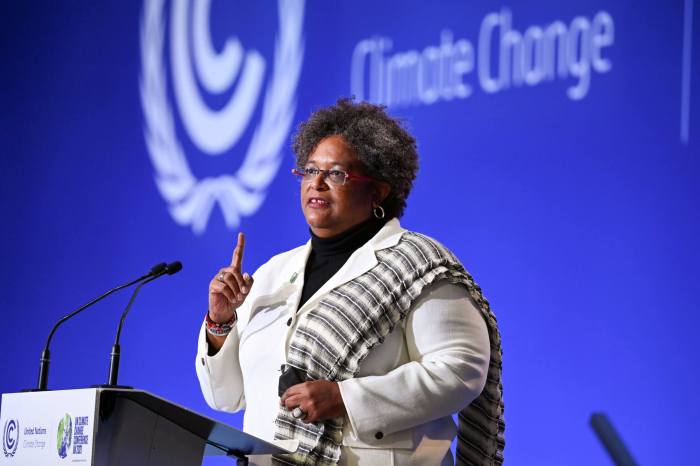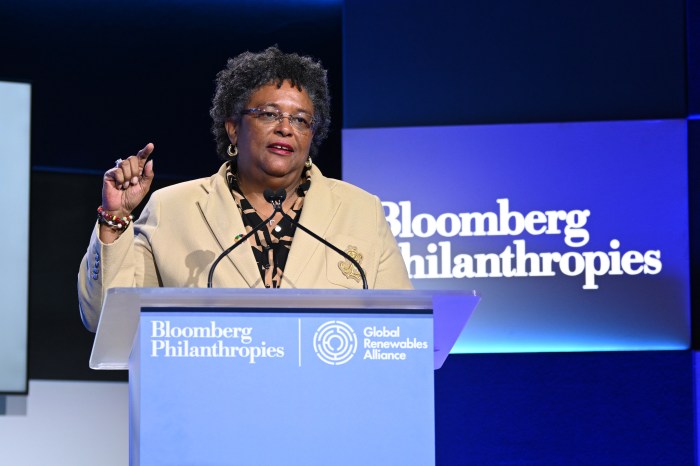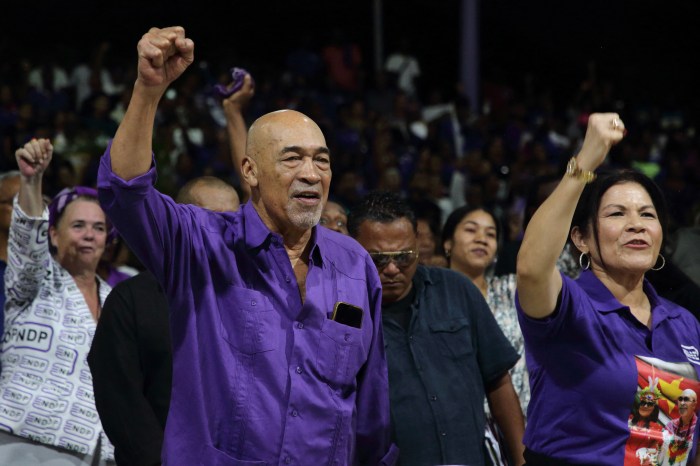Caribbean
As the cultural industries continue to thrive, people involved in the creation, production and distribution of cultural products could soon access additional sources of financing.
This is according to Dr. Hilary Brown, project manager for Culture and Community Development within the Directorate of Human and Social Development in the CARICOM Secretariat who attended the recent 26th Meeting of Regional Culture Committee (RCC).
She said at a time when the sector is strapped for resources, the directors of the Culture Committee were informed of financing mechanisms from the United Nations Education and Cultural Organization (UNESCO), the African, Caribbean and Pacific (ACP) Group of States Secretariat, Caribbean Development Bank (CDB) and Caribbean Export.
Dr. Brownesaid creative and cultural entrepreneurs would be able to submit proposals for funding when the CDB operationalized the Creative Industries Fund (CIF) later this year.
With a startup capital of US$2.9 million, the facility is intended to be a multi-donor fund to encourage innovation, job creation and sustainable capacity-building of the sector.
Barbados
Barbados is working to implement decisions related to the Caribbean Single Market and Economy (CSME), for which it is lead responsibility, as mandated by Heads of Government at the recent 39th Regular Meeting in Jamaica.
Prime Minister Mia Mottley met with key stakeholders in the Government Headquarters to review CSME-related decision that were taken at the conference last month.
These included the Protocol on Contingents Rights; simplified administrative procedures for move of persons under the CSME; the police certificate of character; procedures on the refusal of entry of CARICOM nationals; security; government procurement; and the entitlement of Haitians nationals to an automatic stay of six months upon arrival in CARICOM member states.
Mottley and officials also examined the ensuing work program for Barbados and the Meeting of the Council of Finance and Planning, which will take place in Barbados in September.
Dominica
The Dominica government is moving to ban the use of Styrofoam and certain plastic items from Jan. 1, next year.
Prime Minister Roosevelt Skerrit told Parliament that the decision is in keeping with his administration’s vision to have the island become the first climate resilient country in the world.
The number of items considered to be inimical to the environment to be banned will include plastic straws, plastic plates, plastic forks, plastic knives, and Styrofoam containers.
The Prime Minister said that the necessary legislation to enforce the ban will soon be prepared.
Skerrit said the issue of solid waste management affects the perception of Dominica as the Nature Island and his government continues to grapple with the problem.
Guyana
At least five people were killed during a shootout with police in Guyana, law enforcement authorities said.
They said that the men attempted to invade a house in Illendial, on the outskirts of the capital, Georgetown.
Police said they had recovered an AK-47 rifle with two magazines and two shotguns at the scene.
Investigators also found equipment that was used to cut through the gate of the property.
They believe that the men may have been after a safe that was stored with valuables and cash in the house.
Three of the five men killed during the shootout have been identified, including a 31-year-old driver.
Haiti
The Directorate of Dominican Migration (DGM) said it has deported more than 70,000 Haitians during the first six months of this year as it steps up measures to control the illegal entry of Haitians into the Spanish-speaking country.
The DGM said in June, nearly 12,000 Haitians were returned to the French-speaking Caribbean country and that 7,000 others were turned back at the border trying to enter illegally.
The DGM said that about 5,000 others living illegally on Dominican territory were deported. Some of those deported had been living on the island that the two countries share for more than l0 years.
In May, more than 11,000 Haitians were returned to their country, while in April. about 11,500 were deported.
According to the DMG, for the first three months of the year nearly 35,000 Haitians were deported during migration controls or expelled to the border and that from July 2015 to June this year, at the official and unofficial border points, nearly 300,000 Haitian were deported or returned to Haiti.
St. Lucia
St. Lucia Prime Minister Allen Chastanet has called the development of sentencing guidelines a progressive step for justice in the region.
He was at the time addressing the recent opening of the Annual Judicial Conference, an initiative of the Judicial Education Institute (JEI) of the Eastern Caribbean.
The focus of this year’s conference is the implementation of Sentencing Guidelines in September 2018 and training on Intellectual Property.
Sentencing guidelines are principles which set out the way for judges and magistrates to consider the seriousness of a particular offence and to determine the appropriate sentence in each case.
In his address to the audience which included, members of the legal fraternity, magistrates and judges, Chastanet said sentencing is perhaps the most solemn function of a trial judge or magistrate.
While encouraging flexibility, the said, the task also demands constituency and transparency.
The prime minister said sentencing should not be mainly about punishment and vengeance but it should also be about admonition and correction.
The prime minister also raised the question of whether sentencing was serving the society.
He thanked the Chief Justice of the Eastern Caribbean Supreme Court, Dame Janice M. Pereira and all who had contributed to the guidelines.
Trinidad
Trinidad and Tobago got a police commissioner after an unprecedented six and half years waiting.
Parliament last Friday approved Garry Griffith, a former captain in the Defense Force and a former National Security Minister and under the Kamla Persad-Bissessar administration for the post of commissioner of police (CoP).
Deputy Commissioner of Police (DCP) Stephen Williams, who has been acting CoP since 2012 failed to get the nod for the top post, as his nomination was rejected by Prime Minister Dr. Keith Rowley.
The prime minister also rejected two other DCPs who had applied for the post.
Dr. Rowley speaking during the debate on the appointment of a new CoP said the “deal breaker” for government supporting Griffith’s nomination was his courage to oppose his former People’s Partnership colleagues for the country’s good.
He said Griffith stood up for the people of T&T against a Cabinet that was prepared to bury and hide corruption in the Life Sport program.
Rowley said the public saw Griffith speaking the truth in a matter against former Attorney General Anand Ramlogan who was charged by the police for misbehavior in public office last year after three years of investigation.
Griffith was later fired by the then former Prime Minister Kamla Persad-Bissessar for his stance against Ramlogan.
The new CoP designate is expected to take up office before the end of the month as Williams is going on pre-retirement leave in about two weeks.
— compiled by Azad Ali























